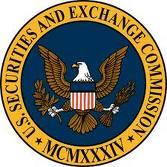 Among the many requirements for Compensation Committees under Dodd-Frank is the heightened independence standard they must satisfy for any comp consultants. The Comp Committee has the authority to appoint, compensate and oversee compensation and other consultants. For most board members, “other consultants” or advisors would translate “attorneys.” Yet, what a chance for Comp Committees to get some real communication help.
Among the many requirements for Compensation Committees under Dodd-Frank is the heightened independence standard they must satisfy for any comp consultants. The Comp Committee has the authority to appoint, compensate and oversee compensation and other consultants. For most board members, “other consultants” or advisors would translate “attorneys.” Yet, what a chance for Comp Committees to get some real communication help.
If ever there was a time for compensation committees to clearly and credibly communicate, given the scrutiny they are under for creating and approving executive compensation, it would seem to be this proxy season. The first step in “Say on Pay” would be for the committee to clearly articulate their decisions in arriving at the executive compensation decisions. It gives them an important chance to “tell their story.”
“Directors must ensure that the CD&A—which is the primary tool for shareholders to understand executive pay—is straightforward, complete and written in plain English,” said Warren Batts, veteran CEO, chairman, director and NACD “Director of the Year” in a blog on executive compensation. “In addition, directors need to respond to shareholder questions and concerns as quickly as possible. I have stood up as chairman of the Compensation Committee more than once to explain what we were doing and why—and never had a negative comment afterwards.”
Compensation Committees that take the time to carefully explain the philosophy and background of its decisions is a sign of respect for shareholders. Getting advice on how clearly you’ve accomplished that assignment could be the most cost-effective risk mitigation tool of the season.






 “I’d hate to think that the U.S. corporate world will become as dysfunctional as the U.S. Senate,” he said, referring to “this monstrosity ” of legislation. His questions to his fellow panel members reflected his belief that new regulations were going to stifle performance. “This is meant to encourage dialogue with shareholders, which is an important principle of the legislation,” the panelist replied.
“I’d hate to think that the U.S. corporate world will become as dysfunctional as the U.S. Senate,” he said, referring to “this monstrosity ” of legislation. His questions to his fellow panel members reflected his belief that new regulations were going to stifle performance. “This is meant to encourage dialogue with shareholders, which is an important principle of the legislation,” the panelist replied.